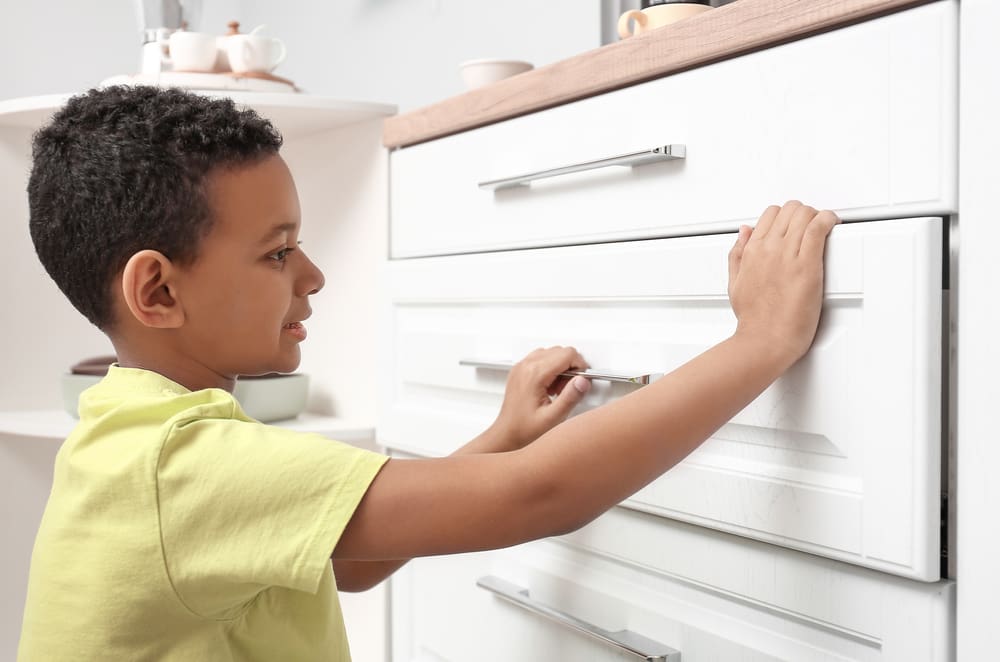Picture this: a forgotten pill bottle tucked in the back, a half-used ointment collecting dust, a colorful assortment of capsules tempting little fingers. This cluttered scene — the classic medicine cabinet — seems harmless enough. But behind the convenience of readily accessible medications lies a hidden danger. Leaving your cabinet unlocked can be a ticking time bomb for the health and safety of your loved ones. Fortunately, a simple solution exists — a lock. This unassuming barrier can be the game-changer that protects your family from accidental poisonings, misuse, and even medication inefficacy.
Let’s delve deeper and explore the compelling reasons why locking your medicine cabinet is far more than just a good idea, but a crucial step towards creating a safe and secure environment for everyone in your household.
Protecting curious kiddos
Children are naturally inquisitive, and brightly colored pills and bottles can pique their interest. An unlocked cabinet is an open invitation for accidental ingestion, potentially leading to serious poisoning. According to the American Association of Poison Control Centers, roughly 60,000 children end up in emergency rooms annually due to medication poisoning. A locked cabinet adds an extra layer of defense, offering precious seconds for adults to intervene.
Preventing misuse and diversion
Prescription drug abuse is a growing concern, impacting individuals of all ages. Unlocked medications readily available at home become targets for misuse, intentional or otherwise. Teenagers experimenting, guests unaware of potential interactions or even individuals struggling with addiction might find access to harmful substances. Locking your cabinet creates a physical barrier, deterring unauthorized use and safeguarding the well-being of those around you.
Ensuring medication integrity
Certain medications require specific storage conditions to maintain their efficacy. Heat, moisture and even light can degrade their potency, rendering them ineffective or even harmful. Bathrooms, with their fluctuating temperatures and steamy showers, are far from ideal storage environments. Locking your cabinet in a cool, dry location (a bedroom drawer perhaps?) safeguards your medications, ensuring you receive the intended therapeutic benefits.
Promoting peace of mind
Knowing your medications are secure fosters a sense of calm and control. Whether you have young children, concerned about visitors or simply value organization, a locked cabinet offers peace of mind. You can rest assured that accidental access or misuse is less likely, allowing you to focus on your health and well-being with greater confidence.
Beyond locking: Additional safety measures
While locking your cabinet is a crucial step, comprehensive medication safety goes beyond that. Here are some additional tips:
- Regularly clean out expired or unused medications: Dispose of expired or unused medications properly to prevent accidental ingestion or misuse.
- Organize and label clearly: Organize your medications clearly, using labeled containers for easy identification and dosage adherence.
- Teach children about medication safety: Educate children about the importance of not touching medicine without adult supervision.
- Review prescriptions regularly: Review your medications regularly with your doctor, discussing potential interactions and ensuring continued necessity.
Remember: Your health and safety are paramount. By taking the simple step of locking your medicine cabinet and implementing additional safety measures, you can create a secure environment where medications are used responsibly and effectively.
This story was created using AI technology.














